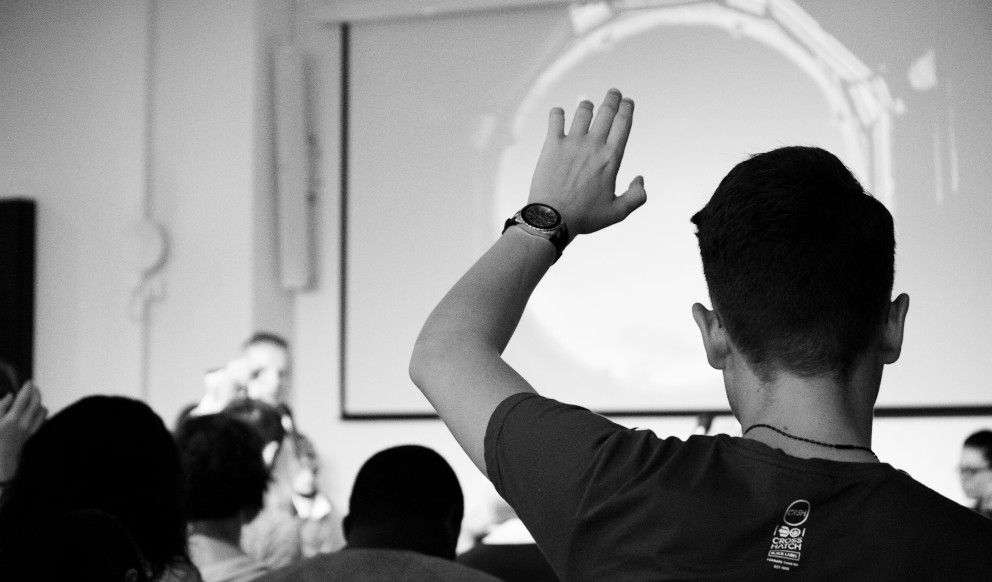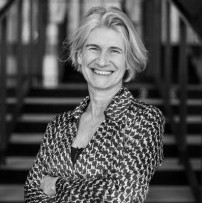
In this post, Veronique Schutjens from Utrecht University shines a light on the various ways in which reflective practice can transform academic practice. Exemplified through the strong intellectual relationships she fosters with her students, reflection becomes not just one learning outcome out of many, but central to the very creation of effective experiential teaching environments. This post is part of the Learning & Teaching Enhancement Series: Reflective Learning.
Let me take you to my ‘academic life-changing’ experience in June 2017. As Director of Education in Human Geography and Spatial Planning at Utrecht University, I sat at the back of a large lecture room, in which 150 first- and second-year students in GeoSciences gathered to be informed about upcoming study opportunities abroad. We all heard three older students reflect on their own experiences abroad. While the first two boasted about (and showed pictures of) the many drinks they shared, the great parties they were in, and the exciting weekend trips they made, the last student took the floor without much ado.
She did not take the easy path. She did not show pictures nor slides. She shared that she was told by many to expect to learn about new cultures, new people, new language, new friends, new courses – but that, in fact, she learned far more about… herself. About her coping with the fear of missing out – seeing celebrating friends in the Netherlands on Facebook and, in the park, hearing other internationals having fun. About her insecurity and reluctance to enter new student networks, which to her seemed far more exclusive and uninviting than she ever expected. She learned not only about her own fears or doubts, but also about overcoming them. About finding solutions. About her ability to solve problems, to take the initiative even in unfamiliar environments, and to ’bounce back’ after times of trouble – about resilience.
The large lecture room held its breath.
And if that was not enough – another peculiar thing happened. After her story, the previous two students asked her to return the microphone, after which they both told their real stories of studying abroad. The real stories about leaving comfort zones and crossing geographical, social, and cultural boundaries and about the joy and pain that goes with it. Authentic and emotional stories were shared, leaving the audience (and me) inspired and emotional, because of the honesty and bravery of all the presenters.
Since then, I am an enthusiastic advocate of reflective learning and happily travel the exciting field of experiential education, in which I now hold a chair at Utrecht University. I believe the most impactful experiences are found when crossing the borders of our comfort zones – borders where it itches or surprises. By actively observing and reflecting on the adventures and challenges in unfamiliar learning zones, abstract thinking is developed, which can be used in new and broader real-world situations. I believe that experiences are the backbone of true learning, but only when it is genuinely reflected upon.
Akkerman & Bakker (2011) find that transformation, and thus learning, requires “continuous joint work at the boundary” (p.149), which may be regarded as an open invitation to teachers, instructors, experts, and learners at both sides of any boundary. Just offering students opportunities to explore new learning spaces is insufficient; we have to actively boost these spaces’ learning and transformation effects. Teaching should target the recurrent pattern in relating experience and theory and in effectively reflecting on experiences. Identity development starts with awareness of, and deep reflection on, differences or boundaries with other people and in other contexts or spaces. When students learn to evaluate and interpret their experiences and perspectives autonomously, this is a strong base for transformative adult learning (Mesirow 1997), a theme recently picked up in educational research (Servant-Miklos & Noordegraaf-Eelens 2021). Luckily my ideas land in a fertile environment, as stimulating students is one of the core pillars of the Utrecht University education model.
I try to apply reflective learning in my teaching three ways: in course assignments, around (full) courses, and in interaction:
Within course assignments, I let students actually experience concepts, theories, and methods. For instance, in a lecture about the ‘lost letter’ investigation of pro-active behaviour of urban residents on behalf of the common good, I test whether students entering the room actually noticed and picked up the ‘letter’ I purposefully ‘lost’ at the lecture room door and let them discuss their actions. In emphasising the importance of timely studying the course assessment rubrics, I ask students to draw a cat in 30 seconds (which I promise to assess immediately), and then discuss why no one asked me about which assessment criteria I would use? In a welcoming lecture of incoming international students, I teach them to avoid stereotyping and to instead withhold judgment in meeting new people with different backgrounds. In a 30-minute assignment, I let them practice the ‘Story Circle’ method with fellow students they haven’t met before. This method, Building Resilience through the Development of Intercultural Competencies: Story Circles (unesco.org), developed by Deardorff in 2019, shows the power of genuine listening. Students return to the room intrigued and interested, and happily and enthusiastically reflect on their insights. I also use reflective assignments in the master’s thesis research process. Upfront, I ask my new masters students for a written reflection on the ups and downs of writing the bachelor’s thesis, and what they want to change or develop in the coming months – and regularly get back to this reflection during the research process.
Around full courses, several I participate in have reflective learning at their heart (Schutjens et al. 2021). For example, in the pre-departure meetings of the Intercultural Learning course, which covers the total exchange period in Utrecht University bachelor programs, we let students write down their goals and expectations, and reflect on their capacities on their own and by two ‘insiders’. We also urge them to write a postcard to their ‘future self’, which they themselves put in an envelope and hand over to the teachers – we then send it to their address abroad after 3 months. In the accompanying assignments during and after the exchange, we ask to reflect on these postcard expectations. And, in preparing for the back-home meetings, we invite students to let the (same) two insiders reflect on the student’s personal development, and to compare these insights with their personal reflections.
Finally, reflective learning in interaction. Do you also witness that students often listen more attentively to fellow students than to teachers? I certainly do. Recently, it was found that group work skills benefit from interactive experiential learning (Cooley, Burns, & Cumming, 2016). That is why ‘reflection in interaction’ is so powerful, and why I frequently use peer-assessment and ask students to reflect in the moment on the quality and accuracy of each other’s feedback. My colleague Gery Nijenhuis developed a course around masters thesis fieldwork in the Global South, in which anonymized reflections on ‘impactful intercultural encounters’ from the previous cohort of masters students are used as input for preparatory workshop discussions in the following year (Schutjens et al. 2021). The power of this workshop is the authentic reflections that bring me back to my ‘academic life-changing’ experience in the exchange program lecture room.
Let us not only cherish these inspiring moments, but actively stimulate them in our teaching.
References
Akkerman, S. F., & Bakker, A. (2011). “Boundary crossing and boundary objects”. Review of Educational Research, 81(2), 132–169.
Cooley, S. J., Burns, V. E., & Cumming, J. (2016). “Using outdoor adventure education to develop students’ groupwork skills: A quantitative exploration of reaction and learning.” Journal of Experiential Education, 39(4), 329–354.
Deardorff, D. K. (2019). Manual for Developing Intercultural Competencies: Story Circles. Routledge.
Mezirow, J. (1997), “Transformative Learning: Theory to Practice.” New Directions for Adult and Continuing Education, 1997: 5–12.
Servant-Miklos, V., & Noordegraaf-Eelens, L. (2021). “Toward social-transformative education: An ontological critique of self-directed learning.” Critical Studies in Education, 62(2), 147–163.
Schutjens, V.A.J.M., G. Nijenhuis, E. Zijderveld & A. Ypeij (2021). “Reflective Interventions: Enhancing Students’ Learning from Intercultural Experiences Abroad.” In Mikulec, E.A., S. Potempa & K. Pike Inman, Education Abroad: Learning Environments in a Global Context, pp. 57–80.
 Veronique Schutjens
Veronique Schutjens
Veronique Schutjens is Professor of Experiential Education in Geography, Faculty of Geosciences, University of Utrecht, the Netherlands. Recent research activities focus on learning and development trajectories, and the (spatial) conditions for interactive reflection to enhance learning effects. She has published in international journals in education, geography, regional science, and economics. Veronique has visited The University of Edinburgh, attended our Learning & Teaching conference, and continues to share experiences and expertise with several colleagues across different colleges and schools.

